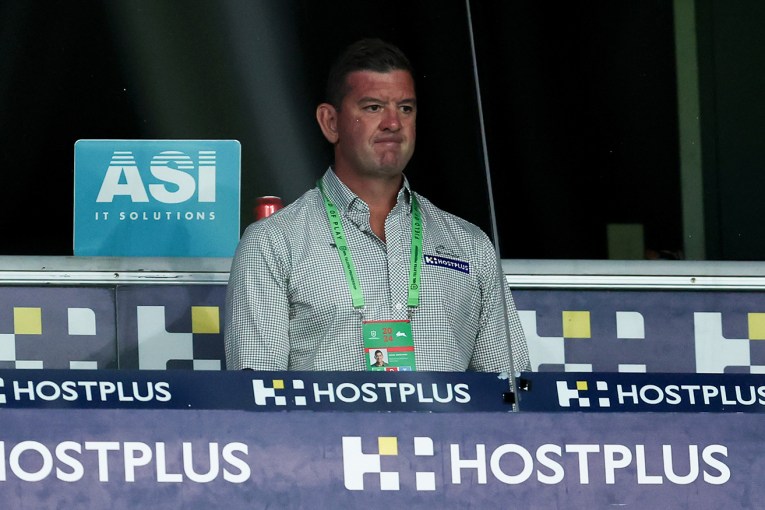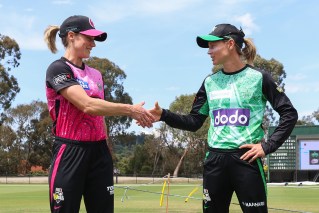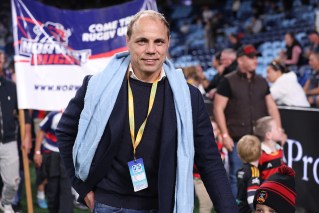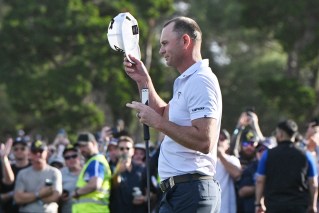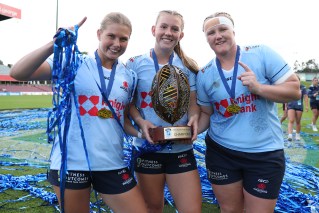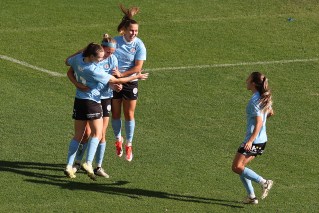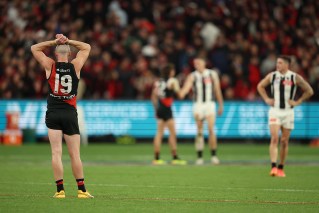An Australian bid for the 2034 FIFA World Cup would face a drastically altered process compared to the ill-fated, expensive and compromised attempt to host the 2022 competition, experts say, as Australia looks to build off the “best ever Women’s World Cup”.
Football Australia CEO James Johnson told The New Daily that the success of the Women’s World Cup has showcased the country’s ability to host future tournaments.
“We’ve hosted the best ever Women’s World Cup. This is important for FIFA and the rest of the world because this is the way their business model works,” he said.
“They need success in terms of broadcast, attendance and revenue coming in so that they can grow the game in the rest of the world.”
Mr Johnson said if you look at previous host countries, often they were able to hold a men’s World Cup off the back of a successful women’s tournament, with the United States, Germany and Canada all following this trend.
“The successful delivery of one major tournament sets you up nicely for another and certainly it is part of our broader strategy at Football Australia,” he said.
“These tournaments create a legacy for the game here in Australia.”
Football Australia is working on a bid for both the 2026 Women’s Asian Cup and the 2029 Club World Cup, while also expecting a 20 per cent increase in participation following the Matildas’ incredible semi-final run on home soil.

Football Australia is expecting a 20 per cent increase in participation after the Matildas’ heroic run. Photo: Getty
Lessons from the past
Bidding for the 2018 and 2022 World Cups – held at the same time from 2009 to 2010 – was marred by a highly corrupt process, with Australia, England and Qatar all accused of bribery in an effort to swing votes their way.
Bonita Mersiades was the head of corporate and public affairs at Football Federation Australia from 2007 to 2010, and a part of the management team for Australia’s bid for the 2018 and 2022 World Cups.
She said an Australian bid for the 2034 World Cup will face different circumstances because of the fallout from the previous process.
“Every single member federation has a vote rather than just a small group of people at the top of the organisation,” Ms Mersiades said.
“It’s much more challenging to please half the 211 voters than it is half of 22 in order to sway a vote your way.”
The team at Football Australia that will lead the effort to host a future tournament is completely different from the one that received only one vote from FIFA’s executive committee in 2010, despite spending $46 million.
Mr Johnson said to win the rights to host a World Cup, a bidding country “has to play a game of two halves”.
“We need a good bid, that’s just the start, but the second part is we need relationships,” he said.
“We need to know the people who make the decisions and I think that is something we have today at Football Australia that perhaps we didn’t have in the past.”
The future
From 2026, the men’s World Cup will feature 48 teams instead of 32, increasing the number of games during the tournament from 64 to 104.
Ms Mersiades said this change creates more issues than just stadiums and infrastructure to host games.
“It is not just a lot of games, fields and training grounds, but it’s also television, accommodation for fans and that sort of thing,” Ms Mersiades said.
“For Australia to bid, it has to be certain that it could bring in bigger broadcast and sponsorship revenue than say – for example – Saudi Arabia in 2034.”

Lionel Messi achieved the dream of a lifetime as Argentina wins the World Cup in Qatar in 2022.
The 48-team format has contributed to a rise in combined bids between countries, with the 2026 World Cup being jointly held in the United States, Mexico and Canada.
Mr Johnson said Australia will partner with another country when bidding for the 2034 World Cup, but it is too early to say exactly who it would be.
“We’ve had a great relationship with New Zealand in football for over 100 years. We proved that we can deliver a top competition together with them,” he said.
“We may need more than just one other country to bid for a future men’s World Cup, that’s just the reality, and the great news for our region is that we are a part of Asia too.”
Football Australia is hoping to turn the record-breaking interest in the Matildas into increased investment for both grassroots and high-performance football, which is vastly underfunded compared to other sports.
Mr Johnson said historically, football hasn’t received a high amount of performance-based funding.
“Sporting policy in this country is to recognise the Olympic Games and to a lesser extent the Commonwealth Games, but not the men’s and women’s World Cups,” he said.
“The good news is the federal government backed the Matildas in for two years with high-performance funding in the lead-up to the Women’s World Cup and I think we saw it is a return on that investment.”
He said if funding is maintained or increased, Australia will see “more of these moments that bring the entire country together”.

